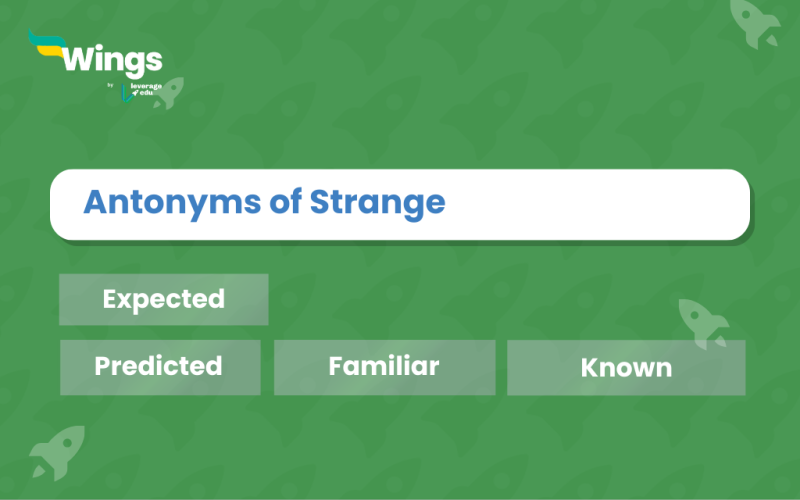Knowing the extensive list of opposites can help us to express ourselves in a more confident and exciting manner. Let’s try to comprehend the opposites of strange to improve our English proficiency. Some of the opposites of strange are known, familiar, and expected.
Etymology and Meaning of Strange
The word strange originated in the early 13th century from the Latin word “extranius” meaning “outsider or foreign” and from the Old French word “estrange” meaning “foreign or unfamiliar”. Which is unknown, unusual, surprising, and different from the ordinary.
Also Read: 110+ Antonyms
5+ Opposites of Strange
Let’s delve deep to understand the opposites of strange. They are listed below:
Antonyms of Strange Examples With Usage
The term strange is often objective and can vary depending on the context and perspective of the speaker.
Let us understand the following examples of using the antonyms of strange in a sentence:
- Known: She is one of the best-known dancers in her school.
- Familiar: I am quite familiar with that girl.
- Expected: She is expecting a guest today.
- Predicted: Astrologers predicted great things for the boy.
- Common: They have a common acquaintance with him.
- Ordinary: He leads an ordinary life.
- Natural: Landslides and Floods are natural disasters.
Must Read: Antonyms of Captive Meaning and Examples
Antonyms of Strange Quiz
1. Select the most appropriate antonym for the strange.
A Rare
B Unnatural
C Scarce
D Conventional
Answer: Conventional
2. Which word is the antonym of the strange?
A Unusual
B Unknown
C Familiar
D Unpredicted
Answer: Familiar
Explore More Exciting Reads Below
This was all about the antonym of “strange” meanings and examples. Hope you understand the term strange and its usage. For more such blogs, follow Leverage Edu.


 One app for all your study abroad needs
One app for all your study abroad needs












 60,000+ students trusted us with their dreams. Take the first step today!
60,000+ students trusted us with their dreams. Take the first step today!